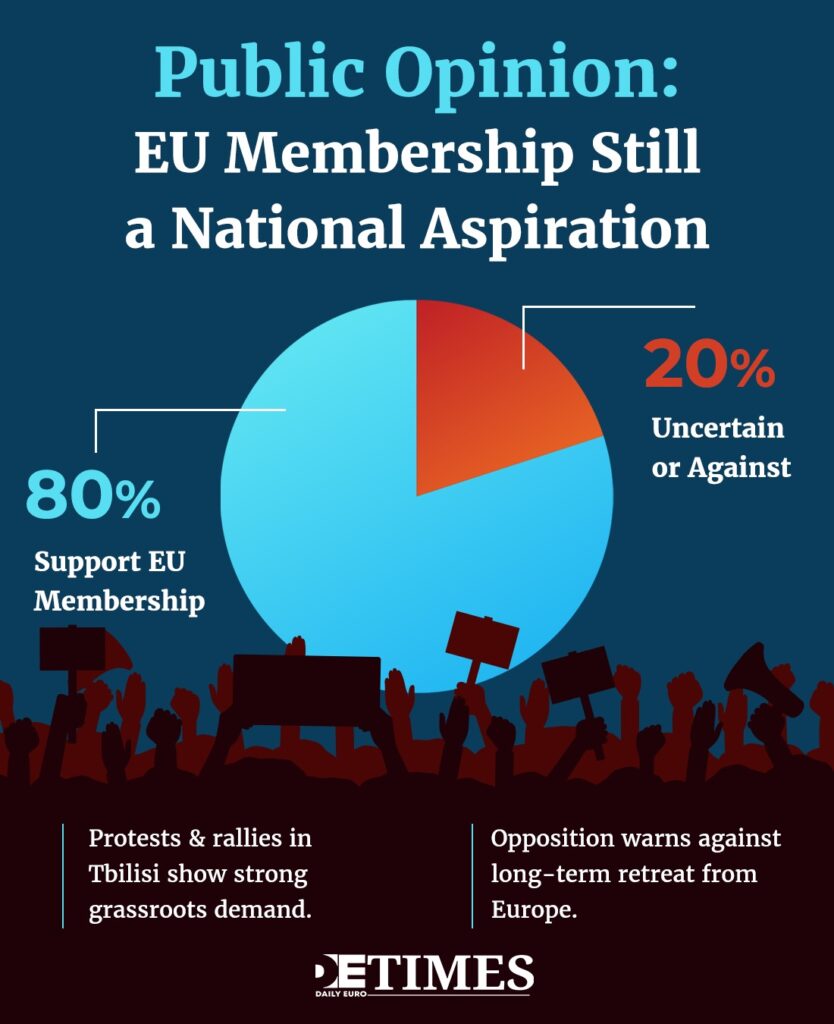Georgia has been striving for integration into the European community for more than thirty years, considering membership in the European Union as a strategic goal and a guarantee of its security, stability and economic development.
This path, despite temporary difficulties, remains an important landmark for both the country’s government and its citizens.
In recent years, the process of European integration of Georgia has gained particular relevance against the background of global geopolitical changes and pressure from neighboring powers, but it also encounters internal and external challenges.
Historical Prerequisites for European Integration
After gaining independence in 1991, Georgia was in a difficult political and economic situation.
The country experienced civil conflicts, separatist movements and the economic crisis, which made it vulnerable to both external pressure and internal instability.
Already during this period, Georgia demonstrated the desire to bring closer to Europe, signing various cooperation agreements with the EU.
The key point was the Eastern Initiative EU, launched in 2009, and the subsequent signing of an association agreement between Georgia and the EU in 2014. The agreement included the creation of a free trade zone, promoting political and economic reforms, as well as promoting the standards of the rule of law and human rights.
In 2023, Georgia received the status of a candidate for joining the EU, which became a symbolic confirmation of the European prospect of the country.
Temporary Suspension of Negotiations
However, the path to full membership proved challenging.
By late 2024, the Georgian government announced the suspension of EU accession negotiations until 2028. This move raised international concern and became the subject of intense public debate.
The reasons for the suspension of negotiations were varied:
- Legislative Initiatives: adoption of laws on “transparency of foreign influence” drew criticism from the EU, which viewed these measures as a possible step toward restricting civil liberties and authoritarianism. In response, Brussels froze part of its financial aid and suspended active support for European integration.
- Political Instability: 2024 parliamentary elections were accompanied by mass protests, accusations of fraud, and criticism from international observers. This significantly complicated the negotiation process with the EU, which traditionally requires adherence to democratic standards.
- Relationship with Brussels: the ruling Georgian Dream party said the EU was pressuring it and using European integration as a tool for political influence, leading to the decision to suspend the negotiation process for several years.
Public Reaction and Support for European Integration
Despite the government’s decision, public opinion in Georgia remains unanimous: the majority of citizens support the country’s European integration.
According to local polls, approximately 80% of the population considers EU membership an important goal for Georgia. Protests and rallies held in Tbilisi and other cities reflect citizens' active participation in the country's political life and their commitment to upholding democratic standards.
Opposition parties and activists argue that the temporary pause in negotiations should not turn into a long-term retreat from European prospects. They emphasize the need for judicial reform, the fight against corruption, and increased election transparency as key conditions for resuming dialogue with the EU.

Geopolitical Aspects
Georgia is located at the crossroads of Eurasia, and its path to EU membership has both domestic economic and geopolitical significance.
Integration with the EU is seen as a way to strengthen the country’s security and sovereignty in the face of pressure from Russia.
EU membership provides Georgia with access to financial assistance, investment, and technological cooperation, which contributes to economic modernisation and improved living standards.
Prospects for Accession
Despite the temporary suspension of negotiations, experts believe that Georgia’s path to the EU remains irreversible, although it will require significant state reforms on the political and economic standards of the state.
These steps are necessary to resume the negotiation process and move closer to full EU membership in the foreseeable future.
History shows that Georgia will not abandon its strategic goal, and European integration will remain a key focus of its domestic and foreign policy. Even despite temporary setbacks and challenges, Georgia’s European integration is a sustainable and long-term process that will continue once the country meets the necessary domestic and external conditions.
Read the Latest Articles on DET!
Airbus’ Edge on Boeing is Innovation, Not Government Support
America First? TikTok Gives Control to Israeli Tech Company
Oktoberfest: A Festival Without the Fest-ivities





